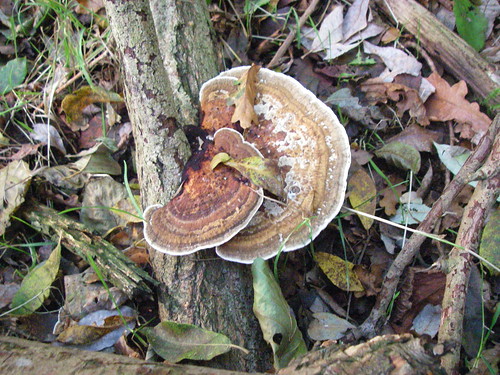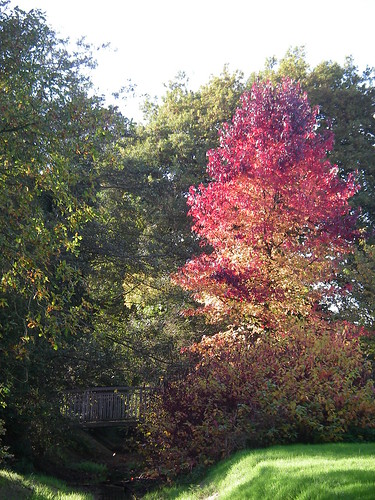Glorious Apples and autumn faggots
Tuesday, November 14th, 2006This is something we did a few weeks ago, but today I’m cooking with apples, so I thought I take the opportunity to talk about them, and some other glorious autumn foods.
When thinking of apples, I’m thinking of England, and more specifically the orchards which surround my in-laws house in Kent. Of course, apples are also associated with American pies and childhood memories of Germany, but dare I say, nowhere are more varieties found than in the UK. The climate in England specifically is the best in the world for apples. In the West Dean Estate in Sussex alone, over a hundred varieties are grown.
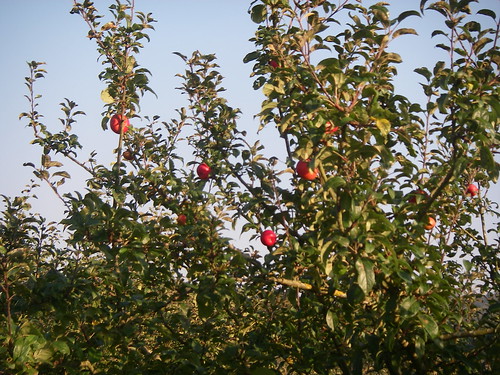
I’ve always thought that so many varieties of a particular food points to a native crop, but the same is true for spuds, and what it rather points to is the rich horticultural history of this country. The kitchen garden was at the heart of any Victorian estate and the head gardener’s proudest achievement. In West Dean Gardens, an astonishing variety of fruit and vegetables are on display at this time of year, mainly left to rot on the plant. I must confess that I had itchy fingers, but it would be a pity to take away from this bounty and spoil the enjoyment of other visitors.
Gourds and figs grow against sunny brick walls. In front of others, staggering arrays of tomatoes are heavy with fruit—the heat reflecting back at them helps to produce a crop which could have come straight from the Mediterranean. There are lush cabbages, beans and onions in dense, green rows, and leeks as thick as my arm. An entire greenhouse is devoted to chillis, the plants lining the walkway with a gaudy array of green, red, purple and yellow—even black. In other greenhouses, bulging peppers, aubergines and even avocados are produced, the latter on trees that stretch to the roof. It was a matter of pride for the Victorian kitchen gardener to grow pineapples in heated greenhouses. Nor did any of the crop go to waste: storage cellars ensured an even temperature of around eight degrees.
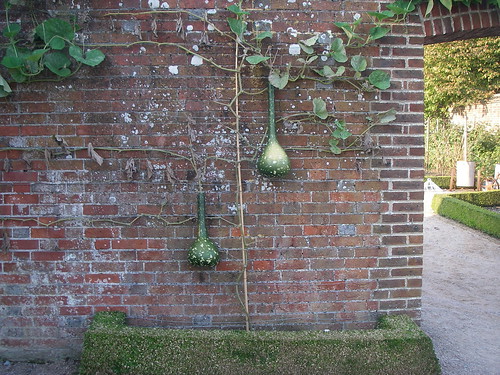
But back to the apples. They didn’t originate in central Europe. In fact apples originate in the Tien Shan ‘Mountains of Heaven’ in Krygyztan. Their astonishing variety is due to the ability of every pip to produce a different kind, in theory (only a few will produce edible apples at all). Two new varieties which I tasted during the West Dean Garden ‘Apple Affair’ last month—’Golden Blush’ and ‘Falstaff’—are not yet available to the public. No doubt, next year there will be others.
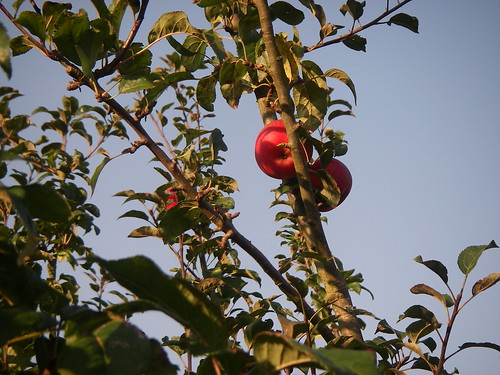
In the crudest sense, apples divide into ‘eaters’ (dessert apples) and ‘cookers’. Then of course there are the many idiosyncratic varieties employed in cider and scrumpy making, which ensures that no two farms down the road in Devon or Somerset produce the same kind, and there aren’t enough names to label them all. Neither is the division between ‘eaters’ and ‘cookers’ absolute, because of course ‘cookers’ are used in desserts (they make the fluffiest baked apples, as they tend to disintegrate) and they say that the best apple sauce contains a mixture of both. I can’t attest to that. In our household, apple sauce is mainly used to complement roast pork or red cabbage, and for both, Bramleys are the apples of choice.
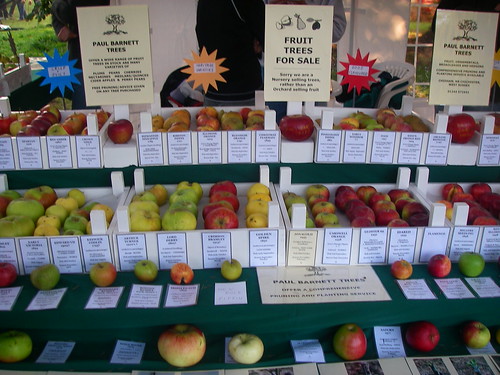
Which brings me back to the cooking thing. I’ve already posted a recipe for red cabbage. It is usually eaten with rich stews, particularly game, and I always make it with the Christmas goose. Today, I’m having it with faggots.
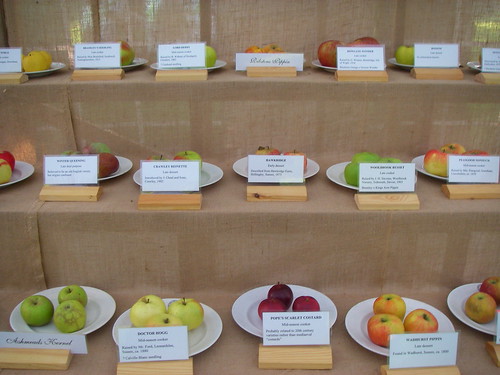
The faggots which our newly-found Newbury butcher (think home-made free-range Scotch Eggs!) provides, look nothing like the frozen variety I’ve seen before. For one, they are wrapped in caul fat. This means, they have to be roasted first. They are then served with swede and potato mash and onion gravy. For the mash, use 1/3 to 1/2 swede and add the zest of one orange to bring out the flavour. Fastidious cooks also reduce some orange juice. For the onion gravy, finely slice a lot of red onions, place them in dripping and slowly braise them, covered, for two hours. Take the lid off for the last twenty minutes to allow the liquid to evaporate, then fry them off. Red wine or stout is often added, and a good beef stock. I’m adding thyme- and garlic-fried mushrooms, carrot and celery and place the faggots and onions in the gravy to heat through, treating the whole thing more like a stew.


